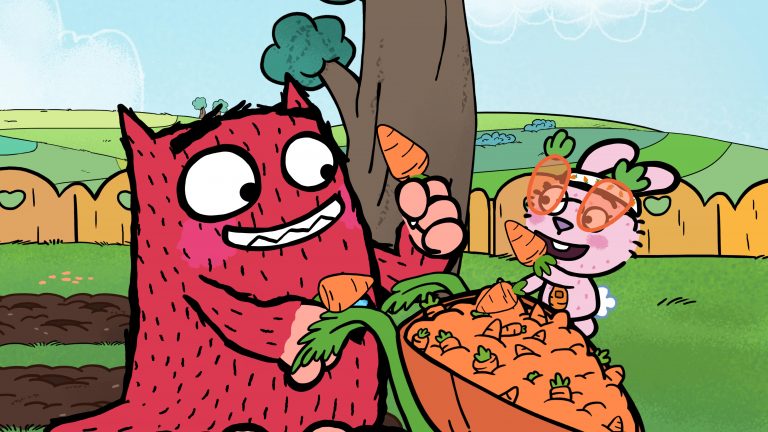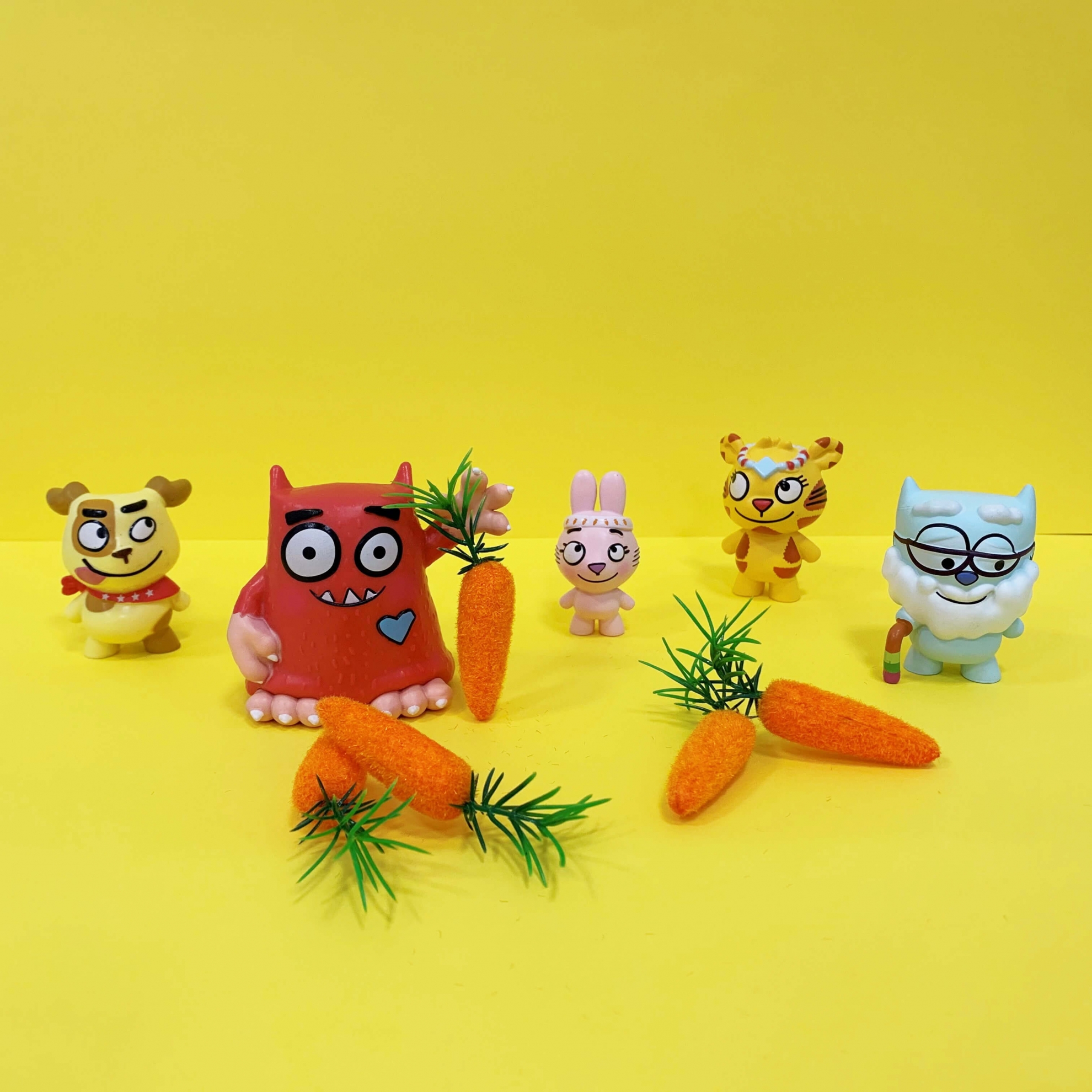Carrot Day
By Leah Brennan - taken from Leah Brennan's Little Life Learning Tips
Carrot Day is all about Love Monster learning to try new food.

In households, this can be a smooth process, but in a lot of families, it can be fraught with frustration, power battles and even tears, often from both sides. Interestingly, being reluctant to try new foods has an evolutionary basis. Once children were able to walk independently it was important for survival that they did not just pick up new foods and eat them as they could have been poisonous. For this reason, it is developmentally normal for children to become fussier around the toddler years.
Eating is a full sensory experience, as well as a social one and children’s experience of sensory input, can vary, making new foods more challenging for those whose smell and taste is heightened.
Here are some useful phrases to help you to draw your child’s attention to the key coping skills in this episode whilst you watch it together:
- Help them identify feelings: “How do you think Love Monster feels about trying carrots?” / “He looks a bit worried about trying carrots doesn’t he?”
- Point out the key skill of repetition: “Love Monster is being brave by having a go at each type of carrot isn’t he!” / “He keeps trying, doesn’t he!”
- Show them that people can change their tastes/beliefs: “Even though he thinks he doesn’t like them, Love Monster is practising trying them, isn’t he? I wonder if he’ll change his mind”.
- Highlight the change and link it to the skill: “He’s discovered he likes carrots now from all his trying!”
Supporting your child to include new foods into their diet will require you to be persistent but also patient.
Here are some ideas you might like to try at home:
- Be mindful of your language. Use the term ‘learning’ to imply that trying new foods is a process and can change e.g “Your learning to eat peas, just like Love Monster was learning to eat carrots.” Avoid saying things such as ‘you don’t eat peas do you’; this language is too rigid and does not give room for change.
- Remove any pressure to eat the new food, instead focus on increasing your child’s familiarity with the new food. It can take more than 10 trials of new food for a child to develop enough familiarity to eat it.
- Be persistent. Keep putting a very small amount of the new food on your child’s plate alongside the foods you know they will eat. Be sure to let your child know that you do not expect them to eat it.
- Safely involve your child in food preparation, washing, collecting, peeling etc. This further increases familiarity, which will encourage tasting.
- Gradually expose your child to the food using all 5 of their senses. This might include touching, smelling, kissing or licking and then eventually nibbling, biting and swallowing the food. Stay at each stage until your child feels more comfortable before moving on to the next one.
- And, just like Love Monster, consider presenting food in different ways including raw (where appropriate) and cooked to change the texture.










